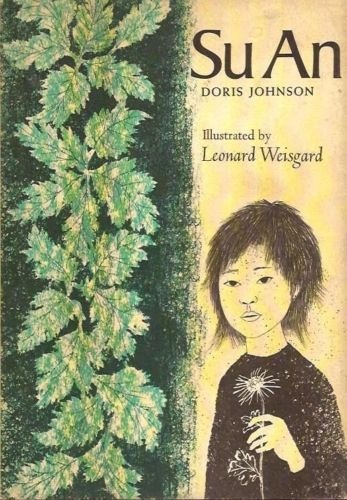
Su An
by Doris Johnson
Illustrated by Leonard Weisgard
Follett Publishing Co., 1968
Reviewed by Barbara Free, M.A.
It is a very moving story as told from a child’s point of view, coming to a new country with a very different language, where people look very different, including the loving adoptive parents, who seek to comfort and love her, but have had no real training in raising a child of another culture.
It was written at a time when lots of Korean children had been adopted by people in the United States, and many more were adopted in the ten or fifteen years after this book was published. By that time, many children from Vietnam and other Southeast Asian countries were being adopted to the U.S. Later, China, Russia and other Eastern European countries, as well as Latin America, not to mention Native American children, were the sources of children available for adoption.
As newer, more reliable means and methods of contraception became more widely available, and as young American women began to be able to keep their children, whether the mother was married or not, other countries became more attractive to couples, or singles, wanting to adopt. Rules regarding prospective adoptive parents’ religion, marital status, sex, or jobs become less stringent, particularly for those wanting to adopt from abroad or willing to adopt older or disabled children.
The poems in this small book address the loss and trauma of leaving everything that has been familiar, including language and caregivers, in a gentle and authentic way, as the adults try their best to understand this young child. It should have been required reading for anyone wishing to adopt any child, not just one from a different country or culture.
There was not a lot of help or training then for adoptive parents other than taking care of them physically, not even much about changing the child’s given name, let alone maintaining cultural ties. Any parent, whether adoptive or not, would probably enjoy the short poems and gain insight into how children think and feel, as all children are born into this life not knowing exactly what to do.
Excerpted from the February 2025 edition of the Operation Identity Newsletter
© 2025 Operation Identity